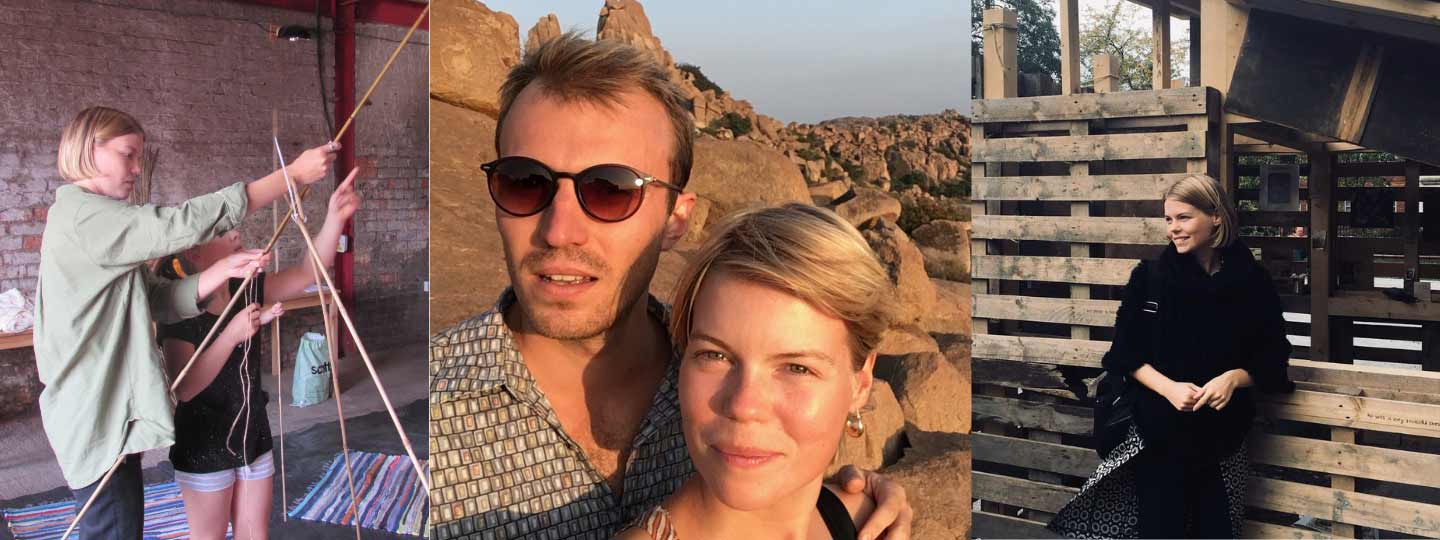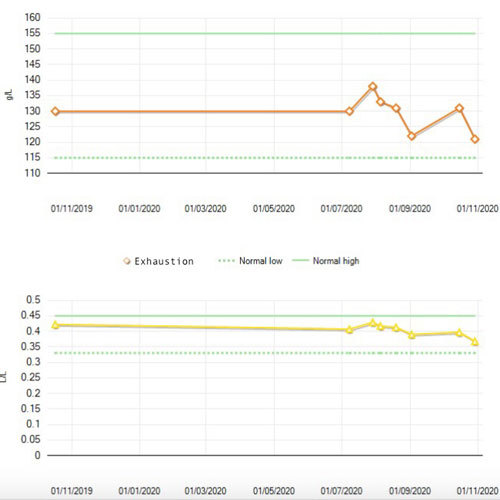The reality of living with rheumatoid arthritis – Matilda's story
15 June 2022
My name is Matilda. I’m 28 and work as an artist and creative event organiser.
I was diagnosed with rheumatoid arthritis when I was 23, after experiencing symptoms for three years.
“I got my diagnosis when I had visible swollen knuckles and fingers”
Before I was diagnosed, I was experiencing swollen knuckles and fingers. Today, they are much less severe and much less frequent.
My other symptoms include stiff painful joints which make it difficult to move, a lack of dexterity and pain. These symptoms can occur all over my body - from my jaw down to my hips and toes.
“When I got my diagnosis, I felt a mix of relief and fear”
It was a long journey to get my diagnosis and sometimes I felt like I must be going mad or imagining my pain. I was relieved to finally know what was happening to my body. I was also scared as I knew there was no cure for arthritis, and I would have to live with it for the rest of my life.
I was lucky I had people to speak to who have rheumatoid arthritis. However, they were all a lot older than me.
They got rheumatoid arthritis in their 40s whereas I was in my early 20s. It did help to get advice from them, but I felt different to be 23 and to have arthritis.
It would’ve been nice to speak to someone the same age as me. To be honest I would still like to speak to people my age who have had rheumatoid arthritis.
“I didn’t make a conscious decision to adapt to my condition”
I instinctively made changes to my life to live with my disability. I would have liked practical advice on how to manage my condition around my daily life.
I wish I had been told that it’s okay to be compassionate towards yourself and your body. I saw this as a weakness. I thought my arthritis was just something to get over, rather than something that is part of who you are.
You have to be kind to your body and help keep it strong and heathy. This is true for all of us, but more so for those living with chronic health conditions.
“Living with arthritis has made me respect slowness and self-care”
I realise that sometimes we all need to take our time. I have also learnt that the language used about my arthritis has made a big difference in my journey.
Some doctors did take the time to read between the lines of what I wasn’t saying. I remember the consultant saying to we don’t want you to put up with this pain and we’re going to try everything we can.
“Pain is difficult to explain”
It’s hard to express in words and it has felt like something I always had to get around or push down ignore.
I always thought that pain was a simple word but it’s so hard to explain what it means to you. It can express physical or mental discomfort, something debilitating, excruciating making it difficult to do day-to-day tasks.
This example of my art shows how my levels of exhaustion fluctuated with my arthritis. I wanted to show the highs and lows as a graph.

If pain was a sound, it would be crunching sound of footsteps over gravel or stones grinding together, that’s how a lot of the time my feet felt when I walked.
I remember when my pain was really bad at night, I would just try and lay as still as possible because I knew the slightest move would be excruciating. I’d try and clamp my hand still under the pillow to stop any movement.
I think if you really want to understand the physical feeling of pain, you need something more visual to explain it.
It does help to use metaphors. My pain is like stones grinding together, or my pain is like someone putting out cigarettes on my skin or my pain is like a burning ball of fire spreading through my body.
“I manage my pain well now”
For me, my life was transformed when I started taking adalimumab in 2020. This is a biological drug which I inject every two weeks. Before that I had been on a variety of different treatments that hadn’t worked.
It makes me angry to think of people throughout the country who do not have access to these drugs because of the cost and criteria for getting them.
I have tried other treatments alongside the drugs. These have included:
- physiotherapy
- hand therapy
- hand splints
- steroid injection
- Seeing a podiatrist (foot doctor)
Also, ultrasound scans are amazing for seeing what is really happening in your hands and feet joints. If you haven't been offered these, ask your consultant for a referral.
“Yoga is important to me.”
Yoga is a fantastic way for me to understand the pain in my body and how my body moves. I have been able to adapt yoga poses to move my body despite having limited mobility.
I am now qualified as a yoga teacher, and I want to try and develop a practice which allows for different bodies and various levels of mobility.
I was healthy before I got diagnosed and I think having a balanced diet is always going to be helpful. Even if it’s not going to cure my arthritis.
Taking ibuprofen helps for short-term pain relief. I’d recommend keeping a pack on your bedside table with a glass of water in case you need it in the middle of the night.
My advice to others living with arthritis is:
- Everyone is different and just because one person with rheumatoid arthritis can do something doesn’t mean the next person can.
- Write a list of questions before you go in for appointments, bring someone with you like a parent or partner so they can ask questions too and take notes.
- Don’t play down your symptoms to your doctors or your nurses. Tell it like it is and ask questions about your treatments.
- This is your health, be proactive, don't just put up with things. I wish someone had told me that. I think because the NHS is free, I feel more uncomfortable about asking for things.
- Keep a log of when you get flare-ups, take pictures (although a lot of the time for me flare-ups aren't always visible), which help back up your case for better drugs or different treatments.
For example, steroid injections can be great if there’s one joint that’s really causing you a lot of trouble. I had one injection on my wrist at the beginning of 2021 and after about 2 weeks it felt completely normal, and it still does!
Try to find ways of doing the things you love but listen to your body and take your time.
“Take pride in knowing that your struggle will play the biggest role in your purpose."
This is a quote from a mural of Marcus Rashford near to where I live in Manchester. It really resonated with me and has made me see strength in what some might see as a weakness.
Learn more about the language of pain
Matilda shared her experiences of living with rheumatoid arthritis and the ways we can use language better when we talk about pain. Listen to the episode ‘In Other Words’ on Radio 4’s Short Cuts.
We’re here whenever you need us.
If you want help, support or information, get in touch.
- Call our Helpline on 0800 5200 520 (Monday to Friday, 9am to 6pm)
- Talk to our arthritis virtual assistant, 24/7
- Take a look at what's on in your area
- Join our online community
- Follow us on Twitter, Facebook and Instagram
You might also be interested in...
-
From shock to understanding: Clare’s diagnosis journey.
Clare, 43, shares her story of being diagnosed with rheumatoid arthritis just before the COVID-19 pandemic.
-
Does gut bacteria play a role in rheumatoid arthritis?
Research we’re funding at King’s College London has found a group of gut bacteria that is linked with a high genetic risk of rheumatoid arthritis.